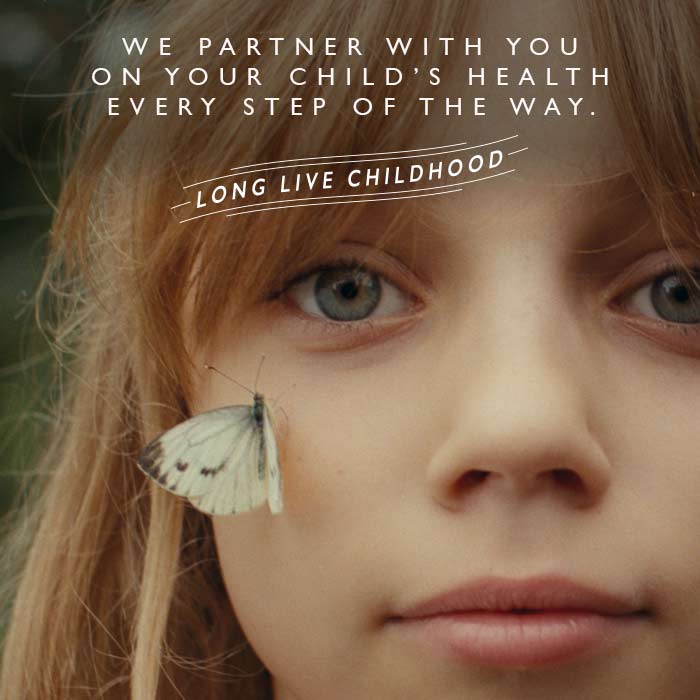We know you are the ultimate protector of your child’s health, and that you want to keep your child as healthy as possible — now and in the future. That’s why we partner with you to help you protect your child from HPV-related cancers and diseases. At CHOC, we provide the HPV vaccine at all our pediatric offices.
What is the HPV vaccine?
The human papillomavirus (HPV) vaccine is an immunization that protects against nine types of HPV infections that are most likely to cause cancer and genital warts. HPV is a virus that affects all people and can lead to cancer of the cervix, mouth, throat, anus and penis, as well as genital warts.
Types of HPV Vaccines
There are currently three brands of the HPV vaccine: Gardasil, Gardasil 9 and Cervarix. These vaccines protect against HPV types 16 and 18, the two types that cause 70% of cervical cancer cases. Gardasil also protects your child from types 6 and 11, which cause 90% of genital wart cases. Gardasil 9 protects against another 5 types of HPV (types 31, 33, 45, 52 and 58) that can also lead to cancer of the cervix, anus, vulva or vagina. The HPV vaccine protects all who receive it if given before exposure to the virus.
How does the HPV vaccine work?
The HPV vaccine works in a series of two or three shots to protect your child from HPV infections. The vaccine signals the body to produce antibodies that will bind to the virus if encountered and prevent it from infecting cells.
The vaccine is most effective when it is administered before your child encounters the virus. Therefore, the most effective way to prevent an HPV infection is for your child or teen to get vaccinated before having sex for the first time. However, if your child is already sexually active, they should still receive an HPV vaccine because condoms do not fully protect against HPV infections.
Who should get the HPV vaccine?
Anyone ages 9 to 45 of any gender can receive the vaccine. CHOC recommends that youth receive the vaccine around ages 11 or 12. It’s important to vaccinate your child, regardless of gender, for maximum protection.
Do boys need an HPV vaccination?
Yes. HPV can cause infections that lead to oral, anal and penile cancers and genital warts. The HPV vaccine can protect against these serious infections and diseases. Getting vaccinated will also help decrease the spread HPV to their sexual partners.
HPV Vaccination Schedule
The HPV vaccine is recommended for people starting from age 11 through age 26. The vaccine is given in a series of shots depending on age:
- Children ages 11-14 receive the vaccine in two shots over a six-to-12-month period.
- Teens and young adults ages 15-26 get the vaccine in three shots over six months.
The vaccine works best when the shots are given on time. Research has shown that younger people have a better immune response to the vaccine than those in their late teens and early 20s. It is important to talk with your child’s doctor to determine the correct dosing schedule, depending on your child’s age at the first dose or if your child is immunocompromised.
Is it safe to get the HPV vaccine?
The HPV vaccine has been monitored for 15 years and has proven to be very safe and effective. The vaccine is not recommended if:
- Your child is moderately or severely ill. Colds and other minor illnesses should not prevent immunization.
- Your child has had a serious allergic reaction to a component of the vaccine or the first dose of the vaccine.
- Your child has a yeast allergy.
- Your child is pregnant (it is not recommended during pregnancy).
Side Effects of HPV Vaccine
The most common side effects of the HPV vaccine are usually minor and experienced with other routine vaccinations. Side effects can include:
- Mild fever
- Tenderness, swelling and/or redness at the injection site
- Dizziness
- Fainting
- Nausea
- Vomiting
Like other vaccines, there is a rare chance of an allergic reaction. However, most people have no trouble with the vaccine. For answers to more common questions about the HPV vaccine, visit our FAQs & Myths page.
What Does the HPV Vaccine Cost?
The HPV vaccine cost will vary depending on your insurance type. However, most insurance companies cover the vaccine. Make sure to check with your insurance provider to see the full coverage.
The Vaccines for Children (VFC) program helps families of eligible children access vaccines at no cost. Eligible children include adolescents ages 18 years or younger who are uninsured, Medicaid-eligible or American Indian/Alaska Native. Read more about the VFC.
Contact Your Doctor
It is important for your child to receive the HPV vaccine to protect them from cancerous diseases. Make an appointment today with a CHOC healthcare provider.














